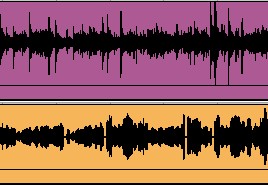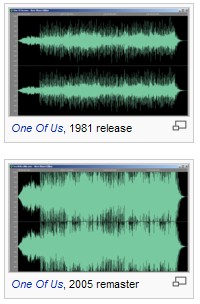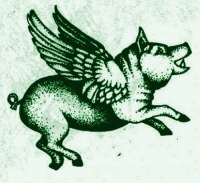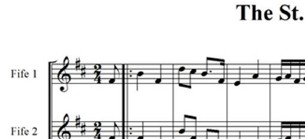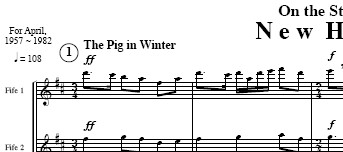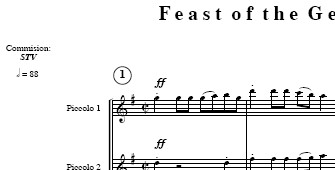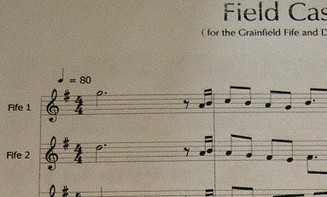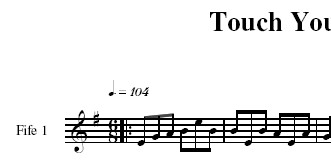 announce
announce
Contest: Results

Before I announce the winners of the Baconworks Tune-smithing Contest I wanted to say a few things.
First, the amount of participation in both submissions and voting was outstanding. Music was submitted by both male and female, by fifers, drummers and guitarists, by the young and the … experienced, from Massachusetts to Michigan. In some cases these tunes were the authors first attempts at writing. Everything that was submitted was of high quality and, consequently, I heard many complaints during the voting process that people had a very difficult time picking just one that they liked most. The challenge for the voters was considerable and the final results reflected a very balanced field of submissions. In fact, just about every entry received votes. Having said that, there were some clear front runners. So, without further adieu I would like to announce the three submissions with the most popular votes.
2nd Runner-Up:
Miss Potter’s Jigg by Jim Williams
1st Runner-Up:
Field Castle by Christopher Lussier
And the Winner of the 2008 Baconworks Tune-smithing Contest is:
Misty Morning by Donald Heminitz
Congratulations to Donald, Christopher and Jim! Also, congratulations to all the authors that took the time to submit their wonderful music.
After working with the editors of the Ancient Times, I have made arrangements to have all three pieces published in the Spring edition of the quarterly periodical.
In addition, The Company of Fifers and Drummers is interested in publishing a book of all twenty submissions. I will, therefore, be contacting all the authors regarding the details and requesting their permission for publication.
Over the course of the next few days I will be posting the biographies of all the authors. Until then, here is the complete list of tunes with the author names listed in no particular order:
- Misty Morning: Donald Heminitz
- The Insult: Katherine Bolcar
- Royal Troubadours: Donald Heminitz
- The Battle of Flamborough Bay: Jim Williams
- The Festering Fish: Eric Chomka
- Mustah Foot: Chris Myers
- Kenilworth Castle: Christopher Szpara
- Bernard’s Barn: Eric Chomka
- Devitt’s Reel: Christopher Szpara
- The Clueless Fifer: Dan Moylan
- Hot Peppers at Midnight: Pat Arnow, Al Renzi, Mary Punch
- Two Pints Past Dizzy: Emit Karakuls
- Miss Potter’s Jigg: Jim Williams
- Taking the Stroll: Dominick Cuccia
- Night Creatures: John Ciaglia
- Touch Your Toes: Casey Swanson
- Field Castle: Christopher Lussier
- Feast of the Geese Eaters: John Ciaglia
- On the Streets of New Haven: John Ciaglia
- The St. Albans Raid: Josiah Raiche
Lastly, I would like to share with you a snippet of an email that I received from one voter, which demonstrates the true thought that many voters devoted to the process. Having a hard time picking one entry, this voter felt compelled to submit her fun list of runner-ups:
The Insult (most catchy)
Festering Fish (most fun to play for fifers)
Devitt’s Reel (most cheerful)
Two Pints Past Dizzy (truly dizzying)
Kenilworth Castle (short and delightful)
So, thank you all, both authors and voters, for contributing and making this successful. And, once again, congratulations to the winners!
